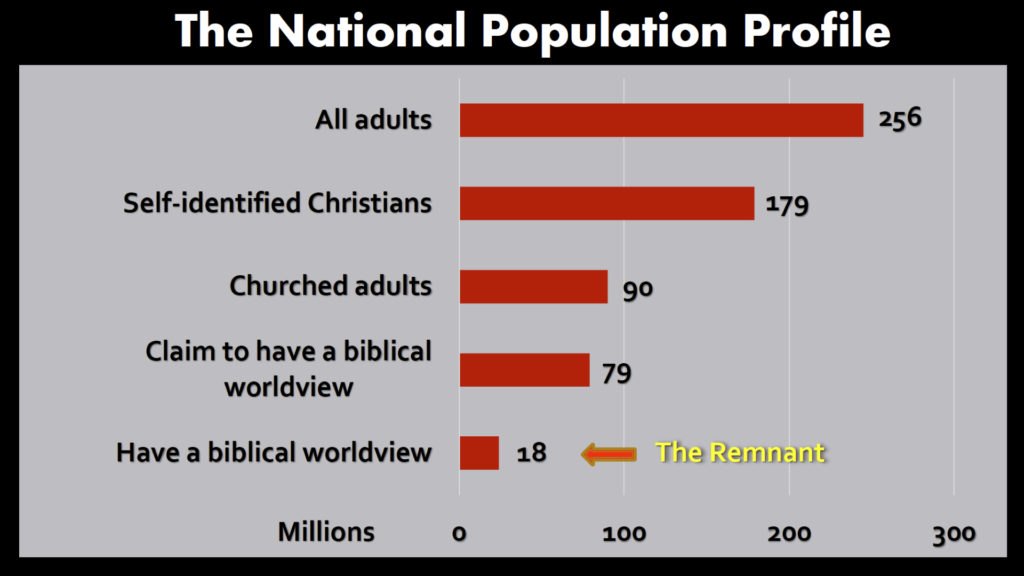
Are You Ready?
Change and transition are a part of everyday life. Whatever role we currently find ourselves in will change at some point in the future. The ultimate transition comes when a person departs this life and enters eternity. The question we must answer is not whether transition/departure will happen but when it does, will we be ready for it?
Over the past several weeks we have focused on Paul’s parting words to his son in the faith, Timothy. Paul was ready for his departure from life to eternity when he penned these words.
For I am already being poured out as a drink offering, and the time of my departure is at hand. I have fought the good fight, I have finished the race, I have kept the faith. Finally, there is laid up for me the crown of righteousness, which the Lord, the righteous Judge, will give to me on that Day, and not to me only but also to all who have loved His appearing. 2 Timothy 4:6-8 (NKJV)
Paul was ready for his departure because he had disciplined himself in three very important areas of life. I have written about the first two disciplines that Paul practiced in my last two posts. Paul fought the good fight and he finished the race. The third characteristic of Paul’s life that is noteworthy is that he kept the faith.
Keeping the faith was the key to Paul’s success in life and ministry. Keeping the faith is the most important thing you and I must focus on if we are going to have any hope of finishing well. In fact, keeping the faith determines whether or not we can fight the good fight and/or finish the course.
What does it mean to keep the faith? Dr. Tony Evans reflected on this with these words.
I didn’t walk away from my faith. Life must close out with Jesus no matter how bad things get. You don’t walk out on Jesus.
Life and ministry are hard. The daily battles one faces can become seemingly overwhelming. The pressures that seem to hit us from all sides challenge everything we stand for. However, no matter how hard the battle, how tired we become, or how alone we find ourselves, we must keep the faith.
In order to keep the faith, we must understand what faith is. A. W. Tozer wrote that faith is confidence in the character of God. We all know that God is faithful. If you were asked what does that mean, no doubt you would say something about the fact that God always keeps His Word.
Therefore, keeping the faith can be compared to staying true to God’s Word. If we are ever tempted to leave the faith, it will result in us walking away from a biblical belief system. We will no longer think and act from a biblical worldview. The world and its ideas will have taken us captive (see Colossians 2:8).
Paul did not “walk out” or “walk away” from Jesus (Word) when the first sign of trouble showed up. He didn’t “give up” on Jesus when everybody else started following the latest fad. Paul was determined to close out life with Jesus.
One of the most dangerous obstacles to keeping the faith is human tradition. Paul warned the Colossians about this when he told them to be careful not to be taken captive by false philosophies. In Colossians 2:8, Paul explained that false philosophy was always according to the tradition of men, according to the basic principles of the world. I can remember hearing my former pastor, Dr. Michael Catt, say that it is always easier to be traditional than it is to be biblical.This is especially true when it comes to education. Over my 50+ years in education, I have seen a lot of ideas come and go and, then, come again. Many of these ideas included some very good and helpful elements. The danger was, and continues to be, chasing after these at the expense of a biblical philosophy of education. What I have seen take place far too often is that parents and educators become so focused on the latest research or “best practice” that they end up taking a biblical philosophy of education for granted. Soon the what becomes more important than the why!
When this happens, it can become very easy to ignore or, even, deny God’s purpose for education. In reality, we are in danger of leaving the faith. The result is that education produces a lot of experts but few disciples of Jesus Christ.
Over the past few weeks I have been asking myself some questions. I share them with you so that you can reflect on them and make sure that you will be ready for any transition that God may bring into your life or ministry.
- What is most important to you in life and ministry?
- Are you living primarily by tradition or God’s Word?
- Is a biblical worldview the foundation of your decisions that you make in life and ministry?
- Which is more important to you — a biblical philosophy of education or the newest trend in education? Which are you emphasizing and giving the most time and attention to?
The good fight is getting more and more intense and it is becoming a greater challenge to stay on the right course. It will be impossible to successfully do either of these unless we are committed to keeping the faith.



 What fights have you been involved in over the past month, week or day? Have you had any battles at home, work, school or even church? It seems like we are always fighting something or someone.
What fights have you been involved in over the past month, week or day? Have you had any battles at home, work, school or even church? It seems like we are always fighting something or someone.






 With Christmas just a little over a week away, I wanted to share with you something that continues to boggle my mind. Of course, everything that surrounds the true meaning of Christmas is absolutely amazing. However, there is one truth that I know I will never fully comprehend. This truth is stated in both the Old and New Testaments.
With Christmas just a little over a week away, I wanted to share with you something that continues to boggle my mind. Of course, everything that surrounds the true meaning of Christmas is absolutely amazing. However, there is one truth that I know I will never fully comprehend. This truth is stated in both the Old and New Testaments. It is amazing to see how the meanings of words change over time. Unfortunately, many Christians fail to understand that this is even happening. This results in them using words and thinking that everyone is defining them the same way they are. The end result is utter chaos.
It is amazing to see how the meanings of words change over time. Unfortunately, many Christians fail to understand that this is even happening. This results in them using words and thinking that everyone is defining them the same way they are. The end result is utter chaos.
Recent Comments